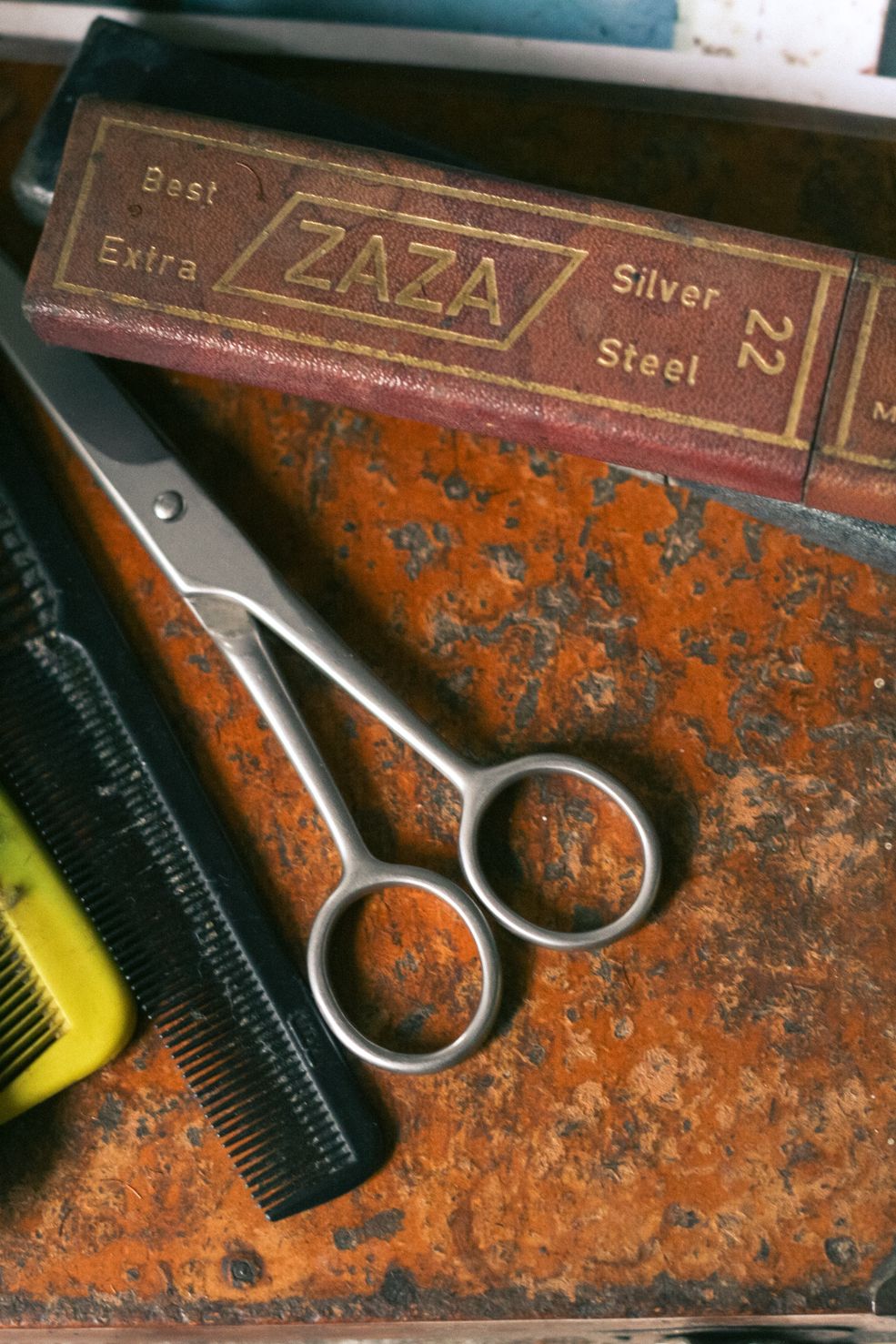The COVID-19 pandemic has finally made me modern.
Since childhood, I have always gone to Jibon Kaku for a haircut. In both our vernaculars – Kaku’s Bhojpuri Hindi and my Bengali – jibon/jeevan means life, and Kaku has indeed shaped my life in more ways than one.
Kaku, with his pair of overused iron scissors, would never stop until he’d make me look like an ‘officer’. While the pretty girls in missionary schools preferred hunks with spikes over officers with trimmed sideburns, Kaku was adamant about making me look ‘decent’.
“Bilkul officer maafik,” he’d say.
“You look too formal,” a girl whom I liked once remarked while I was trying to convince her that I was charming in my own way. But alas, Kaku never gave in. My secret desire to be the blue-eyed boy who could make things happen with a simple wink was forever lost to a pair of scissors.
I shouls have perhaps experimented with different styles to create a better impression among the exotic missionary school girls. The tragedy of being single even at the twilight years of my biological youth would not have haunted me so perilously – I would have been a little more confident while sending love letters.
Also read: A Lamp for Shathrugn Bhaiya
At home, I used to regularly complain about how Kaku wouldn’t let me change my hairstyle, but my family would always remind me that he was a treasured inheritance. Even before he owned The Modern Saloon, Kaku had cropped the curls of my father who, back then, was far more interested in kites and football than profits and turnover.
“Jibon would come to our house with his wooden box and your father would obediently sit before him on that wooden stool,” my grandmother once told me, pointing at a stool that was older than me. I had once used it as a board to make miniature chapattis for my G.I. Joes with a small bit of atta.
Today, the stool lies abandoned in an unused corner in the house. I found it the other day and had to reclaim it from a spider who was possibly annoyed at being rendered homeless.
§
During my college and university days in Calcutta, one time, I occasionally walked into a modern-day parlour. With limited pocket money, which my father would pass on to me through my Pishi (father’s sister), I realised that I didn’t have a lot of options. Although the trained hairdresser tried to me seduce me into getting my hair curled or straightened; I solemnly replied saying, “No, thank you.” I put up a wise man’s face who is aware that beauty is ephemeral.
I could sense despair in the hairdresser’s response, “Only cutting then…” as he chopped off the uneven ends of my hair. I may have been overthinking, but I found the last few strokes of his hairbrush a little impolite.
During my college vacations at home, I visited Kaku’s salon. For some reason, I wasn’t as repulsed as I had been before. I was now willing to sit on Kaku’s wooden chair with a broken headrest, which was anything but a resting spot for my round head.
Kaku complained about my last haircut in Calcutta. “You see… there are no proportions. The side has not grown yet while the centre has overgrown itself,” he said, as he draped a shabby cloak over me.
At that time, I realised that I was more comfortable sitting on a broken chair and under a squeaking fan than on a couch inside an air-conditioned salon. In that moment, I knew that I didn’t have to perform. I could be myself. I knew that apart from becoming the ‘officer’ that Kaku wanted me to be, there were no other ‘becoming’ quotient to be considered. I didn’t need to become the ascetic philosopher who is scornful of appearances, or the busy scholar who does not have the leisure to enjoy a face massage or a hair spa.
As Kaku shared his minute, almost clinical, observations about the genetical similarities and differences between my father’s hair and mine, I realised that he has always been that home to which I had to return, no matter how regular my co-habitation with modernity was.
Post COVID-19, I have not been able to return to that root yet. Although I now live in my hometown and The Modern Saloon is only a five-minute walk from my residence, I haven’t been able to surmount the formidable distance of personal hygiene and safety.
“His place is unsafe, you know! With the bus stand near and all sorts of people turning up… I think you should find a more hygienic parlour,” my father advised me, when the lockdown was finally lifted. I was desperate to get a haircut.
“Why don’t you go to the newly inaugurated Jawed Habib?” my mother asked me. She was ready to sponsor my visit.
As I sat on the sanitised cushions of Jawed Habib, trying to be as normal as possible, the stylist asked me if I would like to consult the catalogue.
“No need! Just make me an officer!” I winked.
Rupayan Mukherjee is a research scholar at the department of English, University of North Bengal. He is the co-editor of Partition Literature and Cinema: A Critical Introduction (Routledge, 2020) and Popular Literature: A Critical Introduction (forthcoming in 2021, accepted and due to be published by Cambridge Scholars Publishing). Besides academic writing, he often contributes to Café Dissensus Everyday and UttarBanga Sambad, a widely circulated Bengali daily.
Featured image credit: Kadir Celep/Unsplash

